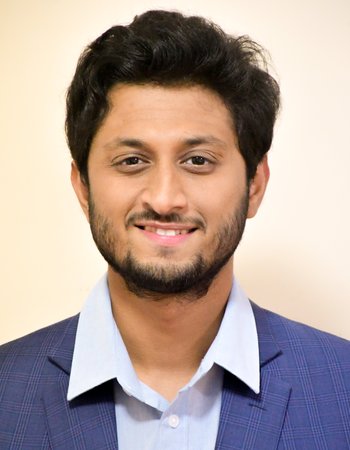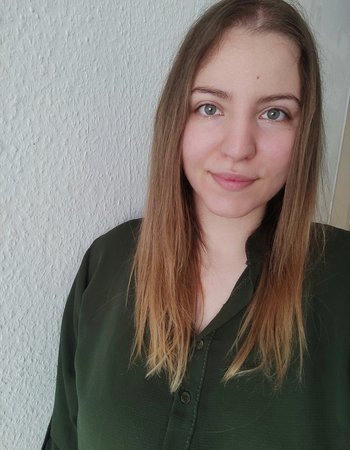Group
Members

Prof. Paschalis Gkoupidenis
Group Leader | Organic Neuromorphic Electronics, Associate Professor | North Carolina State UniversityPaschalis Gkoupidenis earned his PhD in materials science from NCSR “Demokritos”, Athens, Greece, in 2014. During his PhD, his research focused on ionic transport mechanisms of organic electrolytes, physics of ionic-based devices, and of non-volatile memories. Following his PhD, in 2015 he joined the group of George Malliaras at the Department of Bioelectronics (EMSE, France) as a postdoctoral researcher. At the Department of Bioelectronics, his research focused on the design and development of organic neuromorphic devices based on electrochemical concepts. In 2017, Paschalis Gkoupidenis joined as a Group Leader, the Department of Molecular Electronics of the Max Planck Institute for Polymer Research. He is currently leading the group Organic Neuromorphic Electronics. The group is developing various concepts of organic-based devices for neuromorphic processing, sensing and actuating.
Other affiliation(s): Emergent AI Center (JGU, Mainz).
Since August 2024, he is an Associate Professor in Department of Electrical and Computer Engineering at the North Carolina State University, Raleigh/USA.

Dr. Debdatta Panigrahi
Postdoctoral ResearcherDr. Debdatta Panigrahi received his Ph.D. from Indian Institute of Technology Kharagpur in 2019, where he focused his research on improving the performance of organic field effect transistors. He then joined National Institute for Materials Science, Japan as a postdoctoral researcher, where he worked on developing organic multi-valued logic circuits and logic-in-memory devices. In 2021, he was awarded the JSPS postdoctoral fellowship. Then, he joined Technion-Israel Institute of Technology as a postdoctoral fellow and worked on transistor-based flexible sensors. In 2023, Debdatta was awarded the Humboldt postdoctoral fellowship to pursue his research at the Max Planck Institute for Polymer Research. His current research interest is focusing on the development of organic neuromorphic electronics.

Sourabh Pal
Postdoctoral ResearcherSourabh earned his Bachelor’s (2013) and Master’s (2015) degrees in Electronic Science from the University of Calcutta, India, graduating with a Gold Medal for securing the top position. He completed his doctoral studies in Physics at the Indian Institute of Technology (IIT) Kharagpur, India, in 2022, where his research focused on metal oxide thin films, nanostructures, and hybrid heterostructures for optoelectronic and piezo-phototronic device applications, particularly in wearable and flexible platforms. In 2022, Sourabh was awarded the prestigious JSPS Postdoctoral Fellowship. He then joined Columbia University, New York, USA, as a Postdoctoral Research Scientist in the Department of Electrical Engineering in 2022. At Columbia, his research primarily centered on the development of neuromorphic devices capable of emulating the characteristics of biological synapses. By integrating advanced photo-absorbing nanomaterials, he explored the operation of phototransistors as optoelectronic synapses using both electrical and optical controls. In 2024, Sourabh received the esteemed Humboldt Postdoctoral Fellowship to continue his research at the Max Planck Institute for Polymer Research in Germany. His current research focuses on advancing organic neuromorphic electronics, pushing the boundaries of materials science and device innovation.

Aristea Pavlou
PhD studentAristea Pavlou received a BSc in Chemistry from University of Ioannina (UOI), Greece with an undergraduate thesis in Organic Photochemistry. She received her MSc with specialization in Synthetic Chemistry, Biochemistry and Bioactive compounds in the Department of Chemistry, University of Ioannina, Greece where she also worked in different research projects. Her main project was the development of new aqueous nanoparticles of conjugated polymers for bioimaging as fluorescent probes in collaboration with the National Hellenic Foundation of Research (Athens), the division of Biomedical Research of the Institute of Molecular Biology and Biotechnology Foundation for Research and Technology-Hellas (FORTH-IMBB, Ioannina) and the Department of Materials and Science Engineering (UOI). Currently, she is working on her PhD at the Max Planck Institute for Polymer Research.
Alumni
Rabiul Islam - Master’s student (TU Darmstadt, now PhD at KSI Meinsberg)
Leona Lingstedt - PhD student (JGU Mainz, now at Merck)
Hadrien Ledanseur - Master’s student (École des Mines de Saint-Étienne, now freelance web/app developer)
Daria Harig - BSc student (University of Applied Sciences, Kaiserslautern)
Dimitrios Koutsouras - Postdoc (Now at IMEC, NL)
Tanmoy Sarkar - Postdoc (Now at Infineon Technologies AG)
Katharina Lieberth - PhD student (JGU Mainz, now at Dynamic Biosensors GmbH)
Deianira Fejzaj - Master’s student (Now PhD at TU Dresden)
Judith Pons i Tarrés - Master’s student (Now PhD at Chalmers University of Technology)
Imke Krauhausen - PhD student (TuE, now at Philips Research)